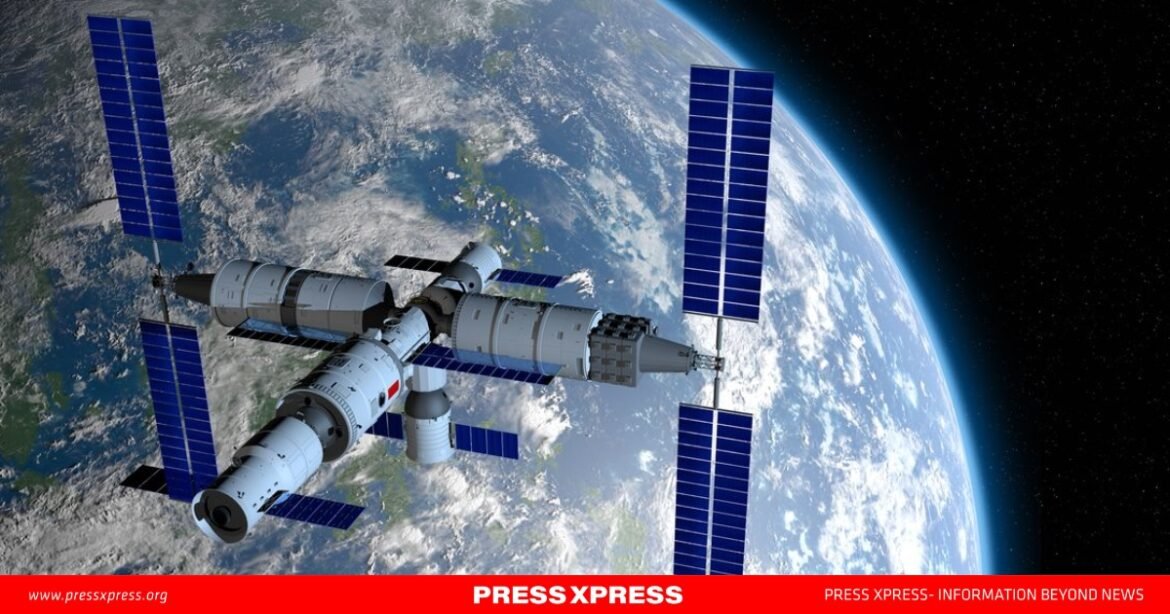China’s breakthrough in artificial photosynthesis represents a transformative step in humanity’s quest to explore and inhabit space
China’s space program has achieved a groundbreaking milestone in its journey toward deep-space exploration. Astronauts aboard the Chinese space station Tiangong recently conducted a successful experiment in artificial photosynthesis, marking a pivotal step in sustaining human life during extended missions and establishing a self-sufficient space economy. This achievement underscores China’s growing role as a leader in space exploration and innovation.
Artificial Photosynthesis: A Game-Changer in Space
The Shenzhou-19 crew aboard Tiangong conducted the first in-orbit demonstration of artificial photosynthesis. Using a specialized apparatus with semiconductor catalysts, they converted water and carbon dioxide into oxygen and ethylene—a compound that can be further processed into rocket fuel. Unlike traditional methods such as electrolysis, which is energy-intensive, this innovative approach operates effectively at room temperature and standard air pressure, significantly reducing energy consumption.
This technology mimics natural photosynthesis, allowing astronauts to produce vital resources in confined or extraterrestrial environments. The implications are profound: it enables the utilization of resources from planetary atmospheres, such as carbon dioxide on Mars, to sustain life and fuel exploration missions. As China Manned Space Agency (CMSA) emphasized, this breakthrough lays the technical groundwork for long-term human survival and interplanetary exploration.
A Strategic Leap in Space Ambitions
Artificial photosynthesis is a key element in China’s broader space strategy. With plans for a crewed lunar landing before 2030 and the establishment of a moon base by 2035, the ability to generate oxygen and fuel in space is critical. The experiment reflects China’s focus on reducing reliance on Earth-based resources, a necessity for extended missions to the moon, Mars, and beyond.
China’s Tiangong space station, operational since 2022, plays a central role in advancing these ambitions. Positioned as a potential successor to the International Space Station (ISS), which is nearing the end of its operational life, Tiangong is expected to become a hub for space exploration and research in the 2030s. Upgrades to its facilities and ongoing research projects underscore its significance in China’s space roadmap.
Comparative Insights: ISS vs. Tiangong
While the ISS has previously explored photosynthesis for plant growth and oxygen production, its reliance on electrolysis for life support highlights the limitations of current technologies. In contrast, China’s artificial photosynthesis system offers a more energy-efficient and versatile solution, paving the way for sustainable deep-space exploration.
This innovation aligns with China’s goal of self-sufficiency in space. By leveraging in-situ resources like Martian carbon dioxide or lunar regolith, China aims to build a sustainable framework for space missions, a concept central to its International Lunar Research Station (ILRS) project.
Broader Space Endeavors
China’s advancements in artificial photosynthesis complement its ambitious space exploration plans:
Lunar Missions: A moon base near the south pole is planned by 2035, with expansions into a lunar network by 2050.
Mars Exploration: The Tianwen-3 mission aims to bring Martian samples to Earth by 2028, advancing the understanding of extraterrestrial resources.
Space Research: China is investigating quantum mechanics, the origins of the universe, and the potential for habitable planets and extraterrestrial life.
Geopolitical and Scientific Implications
China’s achievements signify its rise as a space power, challenging the dominance of traditional players like the United States. Denied access to the ISS due to military concerns, China’s independent advancements demonstrate resilience and strategic foresight. Its partnership with Russia on the ILRS project further cements its role in shaping the future of space exploration.
A Step Toward Space Leadership
China’s breakthrough in artificial photosynthesis represents a transformative step in humanity’s quest to explore and inhabit space. By addressing critical challenges of resource utilization and sustainability, this innovation strengthens China’s position as a frontrunner in space exploration. As the nation progresses toward its ambitious goals, including lunar bases and Mars missions, its advancements promise to reshape the landscape of space science and geopolitics, offering humanity new horizons in the final frontier.


